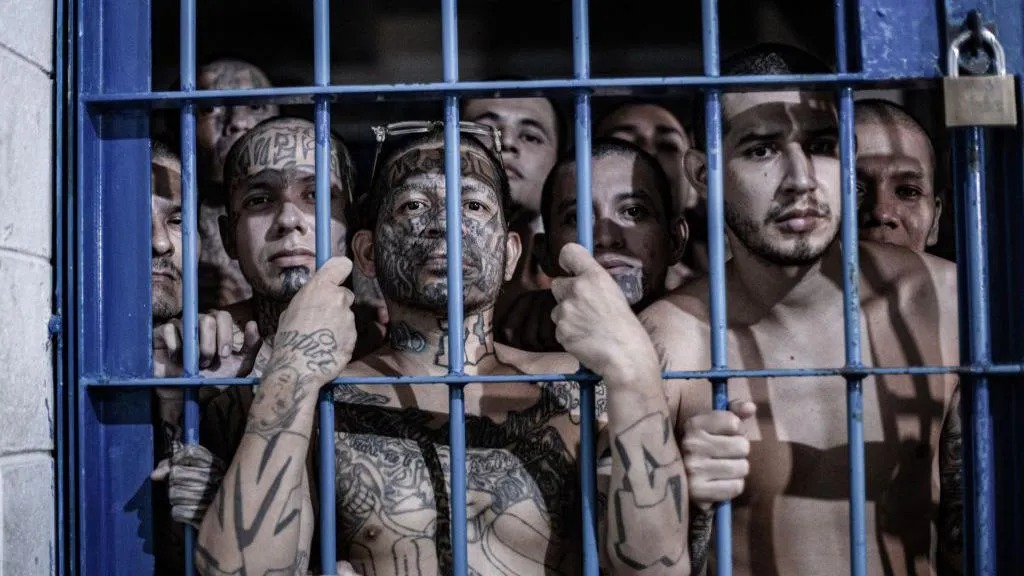
El Salvador’s Proposal: US Criminals in Cecot Mega-Jail
The Cecot mega-jail is a key element in President Bukele’s war against crime. Opened recently as part of his government’s crackdown on violent gangs, Cecot boasts the capacity to house up to 40,000 inmates, making it the largest and most secure prison in the region. The facility has drawn equal parts admiration and criticism for its harsh treatment of inmates. Images of tattooed prisoners, shaven-headed and shirtless, marched in lines along the facility’s corridors have gone viral.
Rights groups, including Amnesty International, have criticized the conditions and treatment of prisoners at Cecot. The prison’s windowless cells hold large numbers of inmates in tightly controlled environments. Detainees are confined in stark conditions, with human rights organizations characterizing it as a hub for “state violence” replacing gang violence.
Despite the criticism, Bukele’s hardline policies resonate with the majority of Salvadoreans. The reduction in gang violence has allowed citizens to live without fear of extortion, harassment, or violence — a reality that was nearly unimaginable a few years ago. Bukele’s popularity remains undiminished, as reflected by his overwhelming re-election victory with more than 84% of votes in February.
The Popular Yet Controversial Crime Crackdown in El Salvador
Since taking office in 2019, President Nayib Bukele has prioritized eradicating gang violence that long ravaged El Salvador’s streets. Under his emergency measures, tens of thousands of suspected gang members and criminals have been swept up and detained. For many citizens, this approach offers peace of mind. However, families of those detained claim innocent individuals have been wrongly included in mass police roundups.
Bukele has dismissed criticisms from international organizations and rights groups, labeling them irrelevant to the needs of everyday Salvadoreans. His administration argues that the dramatic drop in violence outweighs concerns raised by external entities. The Cecot mega-jail, central to his policies, serves as a physical symbol of his iron-fist tactics.
While Bukele’s proposal to house US criminals could bolster bilateral ties with Washington, analysts question its broader implications. The offer highlights El Salvador’s willingness to leverage its prison capacity to strengthen its economy and political standing in the region.
US Migration and Regional Diplomacy
US Secretary of State Marco Rubio’s visit to El Salvador was part of a regional tour addressing migration and security issues. Before meeting Bukele, Rubio had visited Panama to urge officials to counter China’s influence in the Panama Canal. His next stops included Costa Rica and Guatemala, where discussions were expected to focus on migration policies and economic cooperation.
Bukele’s offer also aligns with the US government’s push to expedite the deportation of undocumented migrants under Trump’s promise of “mass deportations.” If accepted, the partnership could provide a mechanism for the US to reduce its overburdened prison system while addressing migration concerns.
However, questions remain about the ethics and feasibility of relocating convicted individuals — including American citizens — to overseas facilities. While the deal has not yet been finalized, businesses and human rights observers are closely monitoring the potential global implications of such an arrangement.
External Link :
Read more on global crime and human rights at BBC
Internal Link :
Learn more about regional security updates in Central America





